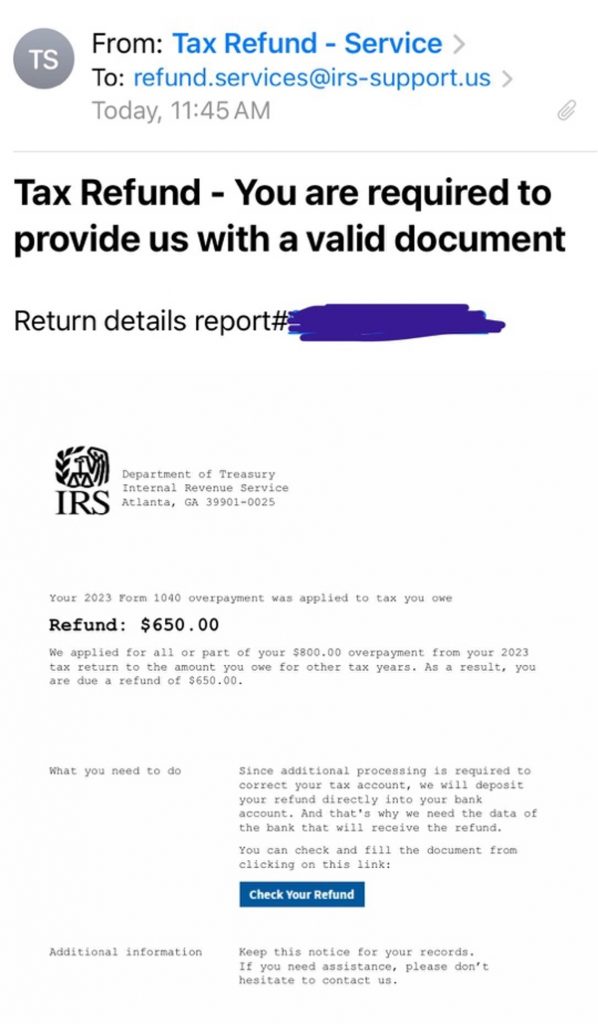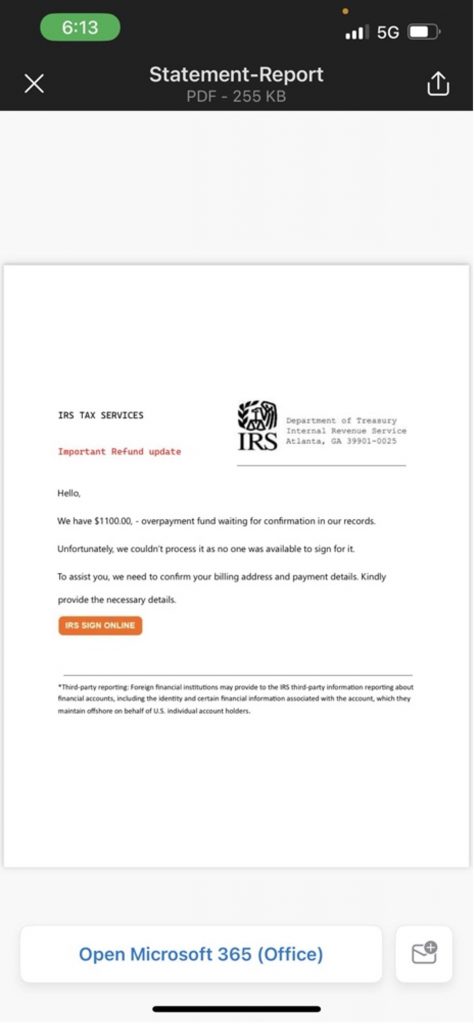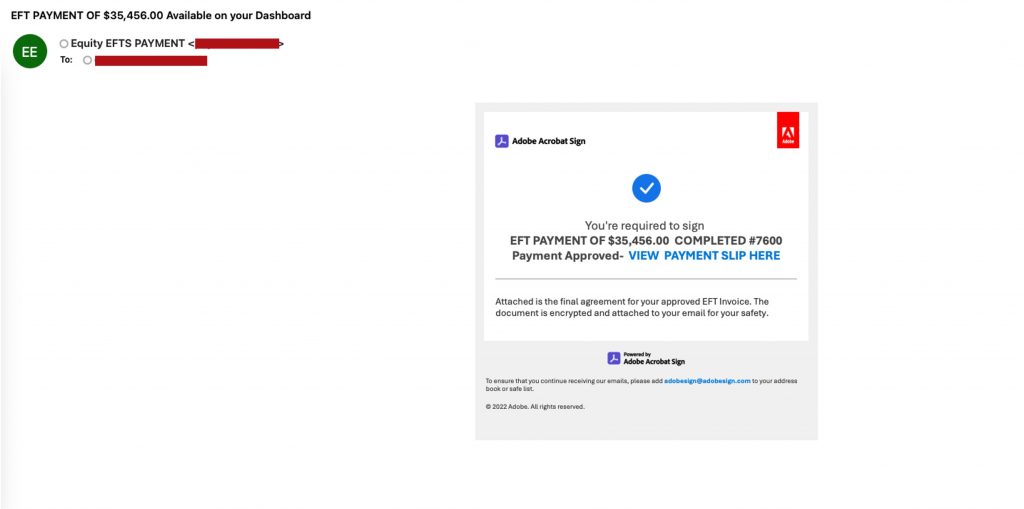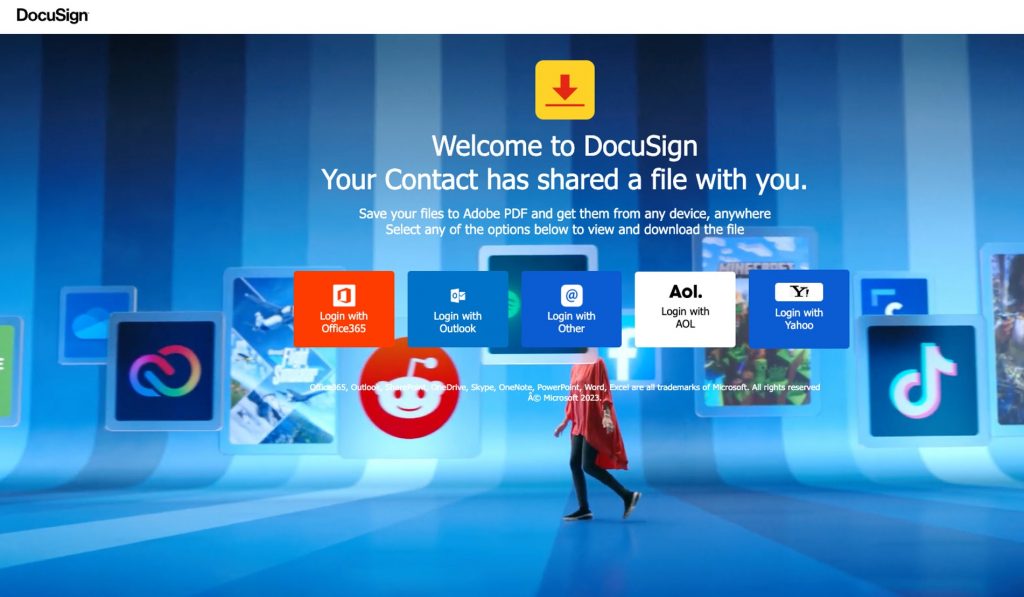This week we’ve found phishing attempts in which scammers are impersonating the IRS, Adobe, and the IC3. Would you have been able to spot these scams?
Phishing Scams
Impersonating trusted brands, scammers send out texts and emails containing phishing links. The links lead to phishing pages, and if you were to enter your PII, such as your Social Security number, login credentials, or credit card details, on one of the sites, the scammers could access it. With your PII, they can steal your money as well as your identity. Below are some examples.
IRS Scams
As tax season 2024 has begun, many people have started to work on filing theirs. Even if you haven’t started yet, chances are that you might have received emails or texts that claim to be from the IRS – watch out!
#1 – IRS “Offer in Compromise” Scam
Many people will turn to the IRS’s “Offer in Compromise” (OIC) program to reduce their taxes. However, beware that scammers have created fake OIC programs/websites to trick people into parting with their money (by charging fees) or sharing their PII.
- Eliminate all tax debt with this secret the IRS does not want you to know about http:// noortimer[.]com. (blocked 227 times by Trend Micro last week)
Note: The IRS has issued warnings of fake OIC programs. Plus, the IRS won’t initiate contact with you by email, text, or social media! If you want to check if you qualify for the program, you can go to the IRS official website.
#2 – IRS Tax Refund Scams
Every year when it’s tax season, there will be lots of fake IRS emails. One of the most common tactics scammers use is to lure people with a (fake) tax refund:


Source: Reddit
Falsely claiming that you have a tax refund from the IRS, scammers instruct you to “sign up” for the money using the link they provide. If you proceed, you will be taken to a fake IRS website and potentially tricked into revealing lots of your personal information, such as your home address, date of birth, and Individual Tax ID Number (ITIN). Be careful!
Stay Away from Scams
The truth is, there are lots of scams and scam sites on the internet and they’re getting even more difficult to detect with common sense alone. However, for an easy and reliable method of detecting and avoiding scam sites, check out Trend Micro ID Protection.
ID Protection can shield you from scams, fake and malware-infected websites, dangerous emails, phishing links, and lots more! If you come across something dangerous online, you’ll be alerted in real time so you’ll know to stay well clear.
Payment Scam (Adobe Acrobat Sign)
Received an email about an unexpected payment? Don’t take any action yet. It’s probably a scam! We found that scammers are sending out the email below to try to trick people into clicking on the attached link:

If you click, you will be taken to a fake login page where you could end up exposing your login credentials. Don’t let that happen!

IC3 Scam
Recently we’ve spotted many cases in which scammers are pretending to be from the IC3, offering bogus “scam victim compensation” to people via email. They guarantee you a lot of money and ask you to contact a law firm to claim it. Don’t do so!

Tips to Stay Safe Online
- Double-check the sender’s mobile number and email address. Even if it seems legitimate, think twice before you take any action.
- Reach out to the company’s customer service directly for help and support.
- Never click on dubious links or attachments! Stick to official websites and apps.
- If you’ve accidentally revealed your PII somewhere, change your passwords immediately and inform your bank and/or other companies that scammers may contact them pretending to be you.
- Check if any of your PII has been leaked and secure your social media accounts using Trend Micro ID Protection.
- Finally, add an extra layer of protection to your devices with Trend Micro Mobile Security. Its Web Threat Protection, Ransomware Protection, Anti-phishing, and Anti-spam Protection will help you combat scams and cyberattacks.
If you’ve found this article an interesting and/or helpful read, please SHARE it with friends and family to help keep the online community secure and protected. Also, please consider leaving a comment or LIKE below.
1 Comments
- By Line Colangeleo | March 1, 2024
